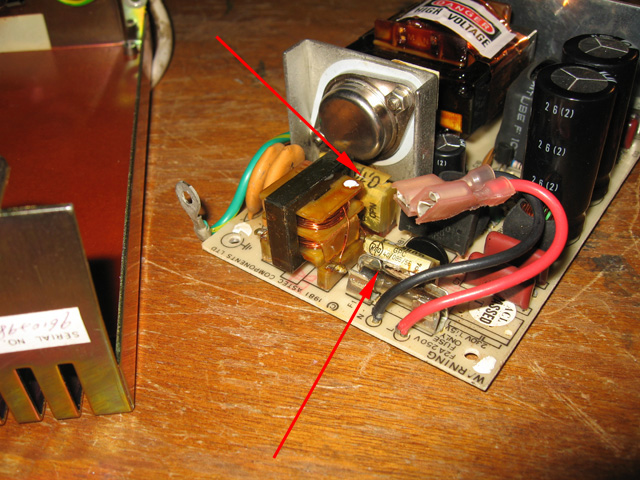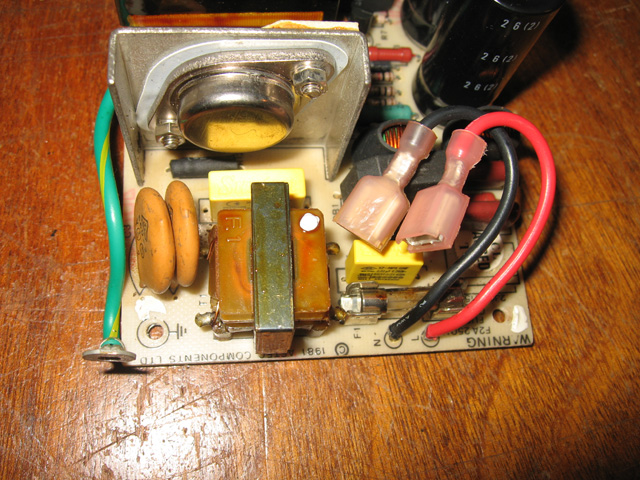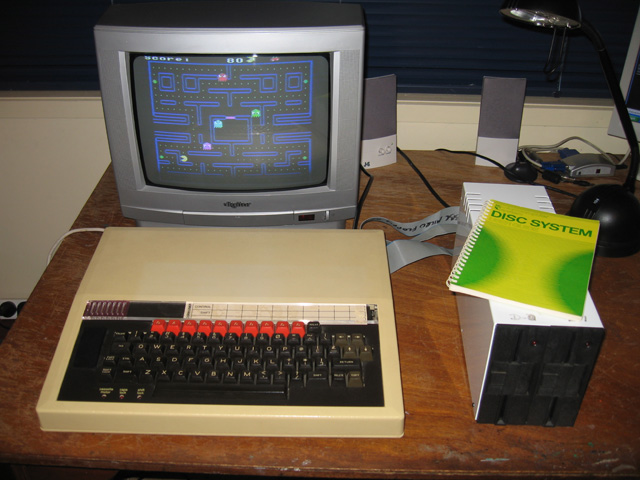Smoke from a BBC PSU - A repair four years in the waiting
Introduction
You know the drill: you turn on a late '70's/early '80 computer which hasn't been fired up for years. It seems to go. After about 30 seconds to a minute there is a pop and acrid smoke pours from the unit. Yes, it's those rice paper RFI suppression capacitors blown again. This has happened to me so often now replacement is routine. Hardly worth recording you would think. However this one is a little different. With this BBC, the capacitors blew years ago but I've only just repaired them.
Why now?
This fix shows my growing confidence with repairs. When this first happened (in early 2008) it seemed almost unrepairable The components seemed so packed in...so close together. I was afraid to disassemble the PSU in case I broke something. The machine seemed to work fine with the damaged capacitors, so I just left them. Now having four years experience under my belt, I revisited the issue. This time it was no problem to fix. It shows that you can hone repair skills without even realising it.

Figure 1. Two shattered capacitors
The hardest part of this repair was getting the PSU board out of it's case. It was a tight fit! However, it was soon free and sporting two replacement capacitors.

Figure 2. Replacement capacitors. All good.
Easing the unit back into the case was a squeeze but ok. The PSU was re-installed and the computer tested. It was fine!

Figure 3. My BBC (b) with drives
Reflections
I just have a couple of reflective thoughts this time. First, where you have a lot of wires plugged to various points on the case, it's a good idea to take photos before disassembly. There are a lot of these with the BBC PSU. Then if there is any doubt where one goes when re-assembling, you can check. I did this and it was very useful.
Second, you learn by doing. Believe it or not, I hardly knew one end of a soldering iron from another when I started this hobby in 2007. To those at a similar level to my early days I say don't get discouraged. Give it a go, have patience, read and research and learn from, and contribute, to the community. It's rewarding and fun!
Tez
5th December, 2011
| Tweet |